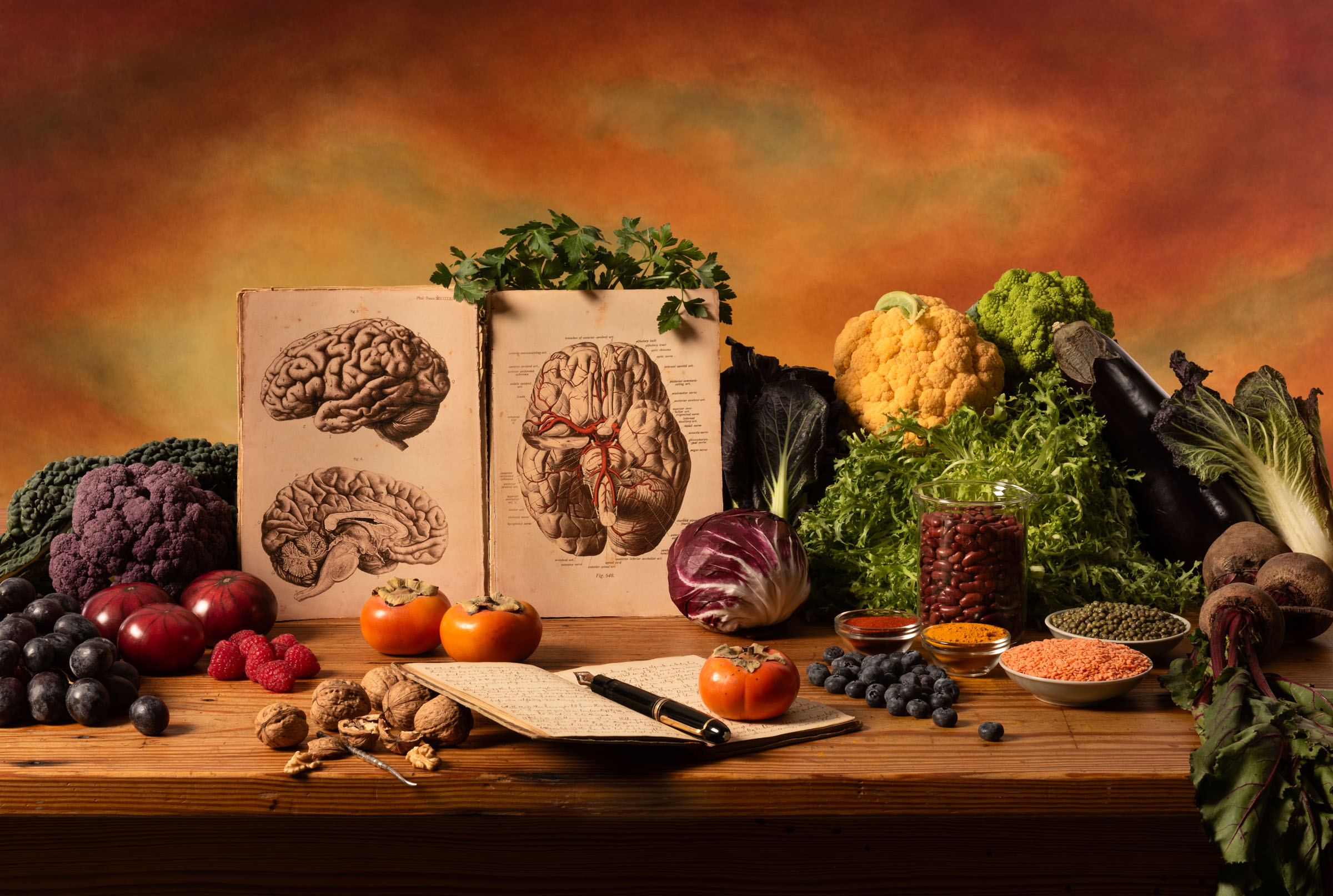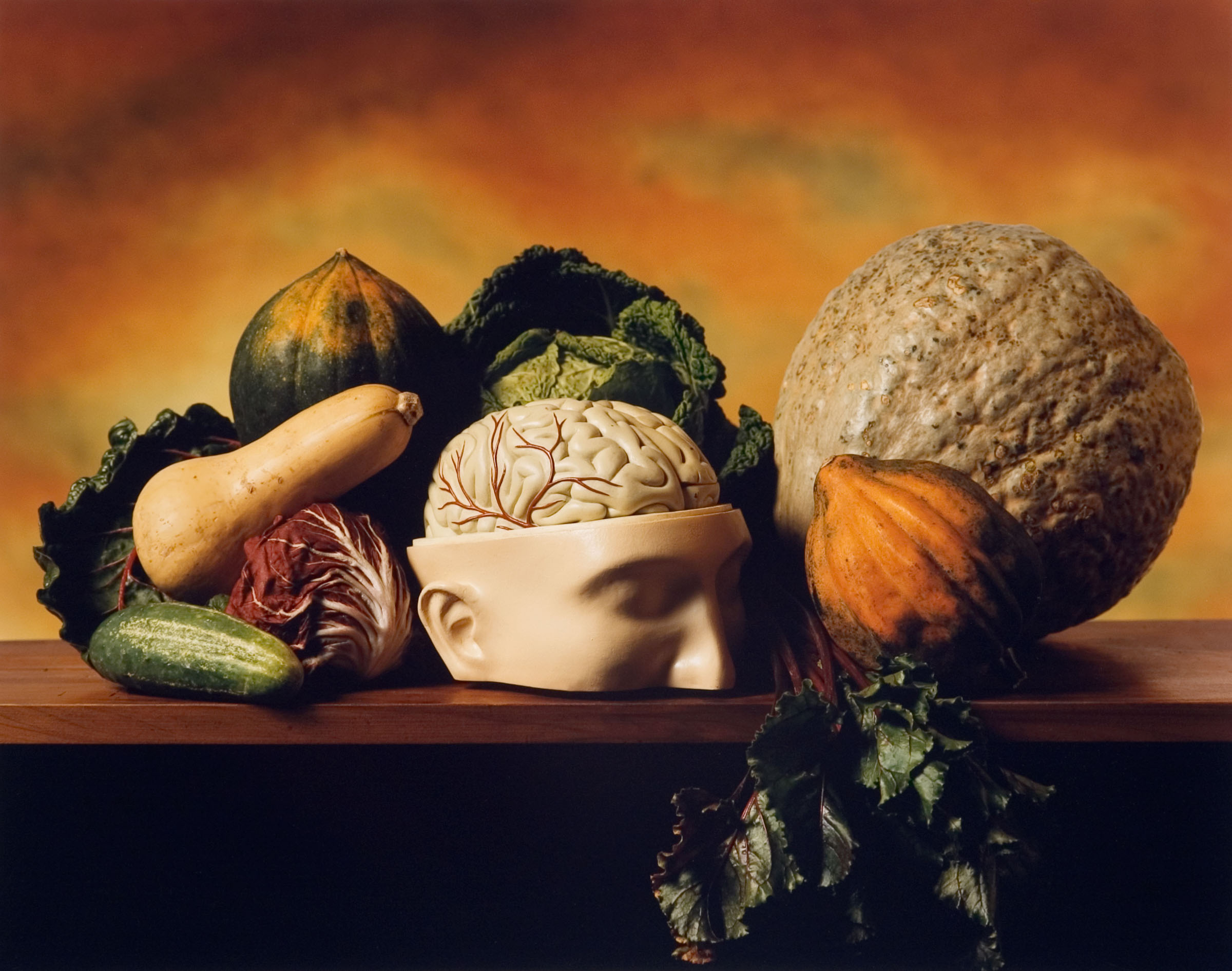You are what you eat, as the saying goes. But it might be more accurate to say you feel how you eat, since the burgeoning field of nutritional psychiatry suggests your diet plays an important role in your mental health.
The right mix of foods and nutrients may serve as a buffer against stress, anxiety, depression, and a range of other psychological issues, research suggests. Studies have shown, for example, that people who follow a Mediterranean diet—one heavy on fruits, vegetables, legumes, olive oil, and fish—tend to have lower risks for depression than people who don’t. Piling your plate with foods like these may even be better for mental health than social support, a known psychological booster, according to a study from 2017.
There may not be an immediately obvious link between what goes into your belly and what happens in your brain. But “humans are one highly complex, highly integrated system,” says Felice Jacka, co-director of the Food and Mood Centre at Australia’s Deakin University and first author of the 2017 study. “The body and the brain…are in constant conversation.”
Indeed, there’s a rich body of evidence to suggest that physical activity of nearly any type, duration, and intensity can improve mental health. And now, leading health authorities, including the World Health Organization, acknowledge that nutrition plays an important role, too.
“Hippocrates was onto this eons ago. He made the connection between the gut and the brain,” says Dr. Uma Naidoo, director of nutritional and lifestyle psychiatry at Massachusetts General Hospital and author of Calm Your Mind with Food. Now, modern science is catching up.
Researchers are still learning about exactly how food influences mental health, but it seems that the gut microbiome plays a key part. Trillions of microbes live in your digestive system, working to break down components of the food you eat and interacting with numerous other parts of the body along the way, Jacka explains. Just as they nourish the physical body, nutrient-dense foods nurture the microbes in your gut, which translates to a range of benefits—including, research suggests, better mental health. One 2023 study in mice linked a type of bacteria found in foods like yogurt to lower levels of stress, and potentially lower risks for anxiety and depression, apparently due to its ability to regulate parts of the immune system.

The gut also has a direct line of communication to the brain via the vagus nerve, which runs from the brainstem to the large intestine. Mood-regulating neurotransmitters, including feel-good serotonin, are made in the gut. And once the gut pumps them out, the vagus nerve “acts like a two-way text messaging system that allows neurotransmitters to go back and forth, up and down, all the time,” Naidoo explains.
More From TIME
Although the science isn’t settled, some researchers have even posited that the mineral zinc, which is found in foods including oysters and nuts, may boost levels of a protein that promotes new growth in the brain, potentially leading to better cognitive function and mental health, says Dr. Drew Ramsey, an assistant clinical professor of psychiatry at Columbia University and author of Eat to Beat Depression and Anxiety. By eating well, “you’re giving your brain cells all the nutrients they need to grow and thrive,” he says.
Want to learn more about how we eat and drink now? Get guidance from experts:
Jacka isn’t overly prescriptive about what people should and shouldn’t eat for peak mental health. But, as a general rule of thumb, she suggests orienting your diet around a wide variety of plant-based foods, such as fruits, vegetables, nuts, beans, herbs, and whole grains, and limiting how often you eat ultra-processed foods, such as packaged chips, cookies, and snacks.
How and where you eat is also important, Ramsey says. Many people build their shopping lists primarily around what is cheapest and easiest to prepare. But developing an emotional connection to food, whether by purchasing it at farmer’s markets where you can meet the people who grow it or by slowing down and sharing meals with friends and family, can nourish the mind and soul as well as the body, he adds. “Through our relationship with food,” Ramsey says, “we can build community.”
If you’re looking for specific mood-boosting foods, here’s what science suggests you should put on your grocery list.
What to eat for better mental health
Omega-3 fatty acids: While much of the research is preliminary, there’s some evidence that eating foods rich in omega-3 fatty acids—including seafood, nuts, and plant oils—at least a few times per week can improve mood disorders like depression and bipolar disorder.
Cruciferous vegetables: Veggies including cauliflower, broccoli, cabbage, and arugula contain compounds that reduce inflammation, which is linked to a range of health issues including depression and anxiety. In one 2022 study, people who ate multiple servings of cruciferous veggies each day had significantly lower self-reported stress levels than people who ate less.
Fermented foods: Famous for feeding your gut microbes, fermented foods like plain yogurt, kimchi, and sauerkraut are powerhouses for enhancing the brain-body connection. Some research suggests that eating two to three servings per day is linked to measurable reductions in stress and depressive symptoms.
Spices: Cinnamon, saffron, turmeric, black pepper, and other spices are rich in antioxidants, contain anti-inflammatory compounds, and improve metabolism, which may also boost mental health. Whenever you’re preparing food, Naidoo recommends reaching for spices to add flavor, rather than salt or sugar.
Beans and leafy greens: Some research suggests anxiety is related to magnesium deficiency—so eating foods that are rich in this mineral, such as beans, spinach, and Swiss chard, may help calm the mind.
More Must-Reads from TIME
- Inside Elon Musk’s War on Washington
- Meet the 2025 Women of the Year
- The Harsh Truth About Disability Inclusion
- Why Do More Young Adults Have Cancer?
- Colman Domingo Leads With Radical Love
- How to Get Better at Doing Things Alone
- Cecily Strong on Goober the Clown
- Column: The Rise of America’s Broligarchy
Write to Jamie Ducharme at jamie.ducharme@time.com
